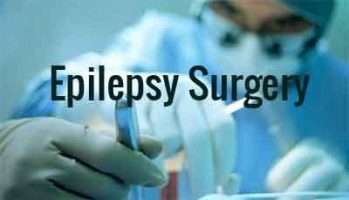- Home
- Editorial
- News
- Practice Guidelines
- Anesthesiology Guidelines
- Cancer Guidelines
- Cardiac Sciences Guidelines
- Critical Care Guidelines
- Dentistry Guidelines
- Dermatology Guidelines
- Diabetes and Endo Guidelines
- Diagnostics Guidelines
- ENT Guidelines
- Featured Practice Guidelines
- Gastroenterology Guidelines
- Geriatrics Guidelines
- Medicine Guidelines
- Nephrology Guidelines
- Neurosciences Guidelines
- Obs and Gynae Guidelines
- Ophthalmology Guidelines
- Orthopaedics Guidelines
- Paediatrics Guidelines
- Psychiatry Guidelines
- Pulmonology Guidelines
- Radiology Guidelines
- Surgery Guidelines
- Urology Guidelines
Long-term gains with early epilepsy surgery

There are important, long-term gains from hastening the processes around surgical interventions against epilepsy before the disease has had too much negative impact on brain functions and patients' lives. These are some of the findings of a thesis for which more than 500 patients were studied and followed up.
"Around one third of those undergoing surgery are children and the percentage is growing, which is encouraging. But the average time until operation for adults is still 20 years, and that's a very long time. There's a major lack of knowledge among the treating neurologists about which patients may benefit from epilepsy surgery," says Anna Edelvik, researcher at Sahlgrenska Academy and Senior Physician on the Sahlgrenska University Hospital epilepsy team.
Around 60,000 people have epilepsy in Sweden, making it our most common chronic neurological disease. Around one out of three patients do not become seizure free from medication and it is primarily here that surgery comes in. If the epilepsy is focal, which implies that seizure onset is clearly delimited in the brain, surgery may be possible.
Short disease period
"We try to locate the origin of the seizures as precisely as possible, and determine the proximity to areas of vital functional importance. It's important to be able to give good information to the patients about possible risks and benefits before making a decision to operate or not," says Anna Edelvik.
Her research shows that 58 percent of those who underwent surgery were seizure free after five to ten years compared with 17 percent in the group of those who were not operated. The longer the individuals had had epilepsy, the fewer were seizure free on the long term.
The importance of acting faster is also apparent from the study concerning how many of those who underwent epilepsy surgery who were gainfully employed at long-term.
"The highest number of persons in full time employment at long-term was found among those who worked full time before surgery, but even if they dropped out of the labor market before surgery, about one third of the persons who were seizure free had full-time employment after ten to 15 years. It's important to identify the patients as early as possible before the epilepsy has had too large of an impact," says Anna Edelvik.
Earlier studies
In another study, when non-surgical patients rated their health-related quality of life, it was considerably lower than among comparable individuals without epilepsy. The group who underwent surgery scored higher and was more like the age and gender-matched reference group, but still had lower ratings for social function and mental health.
"They want to have a job and a family like everyone else, but that doesn't happen just by becoming seizure free. Even if the whole lifestyle situation doesn't change, many would in any case benefit from being examined or evaluated for epilepsy surgery earlier than today," says Anna Edelvik.

Disclaimer: This site is primarily intended for healthcare professionals. Any content/information on this website does not replace the advice of medical and/or health professionals and should not be construed as medical/diagnostic advice/endorsement or prescription. Use of this site is subject to our terms of use, privacy policy, advertisement policy. © 2020 Minerva Medical Treatment Pvt Ltd